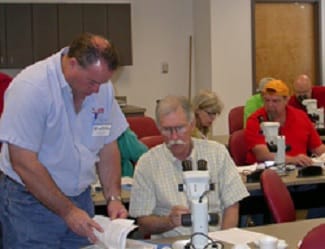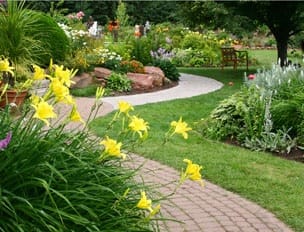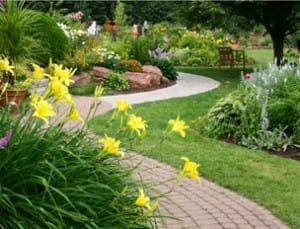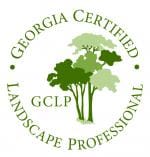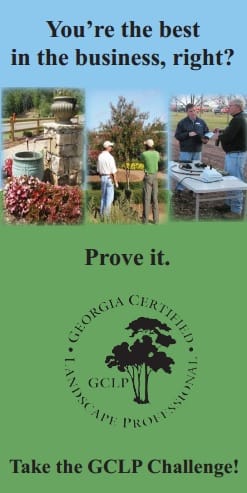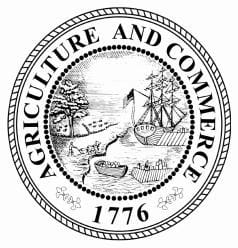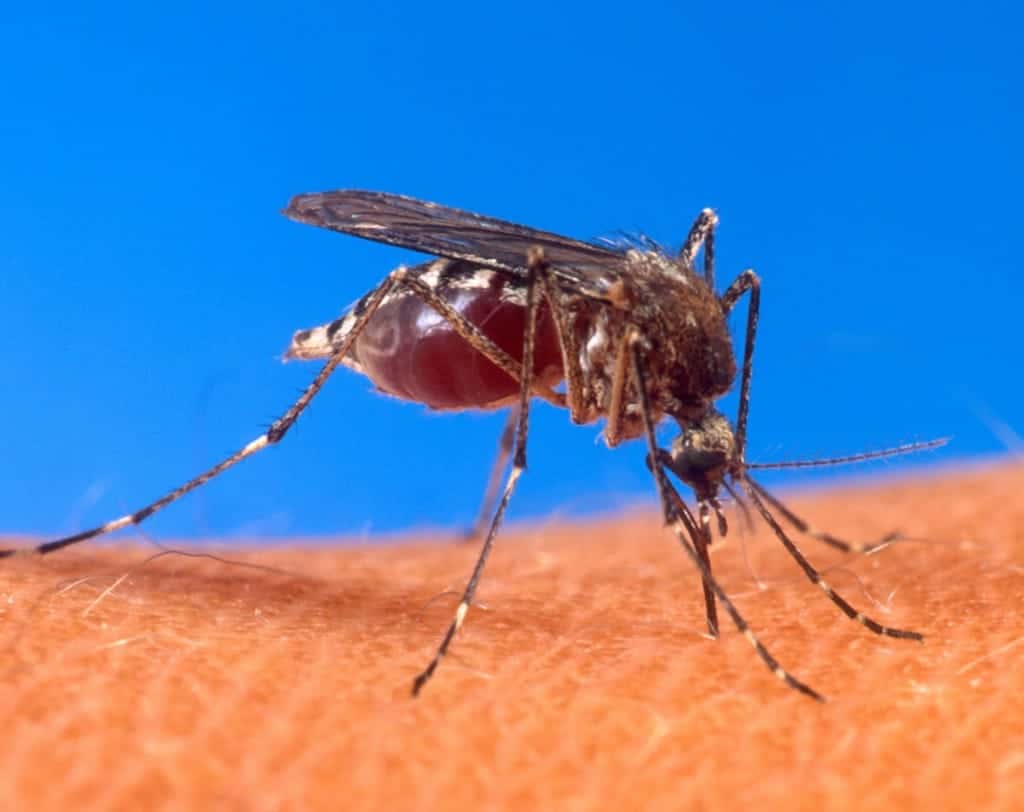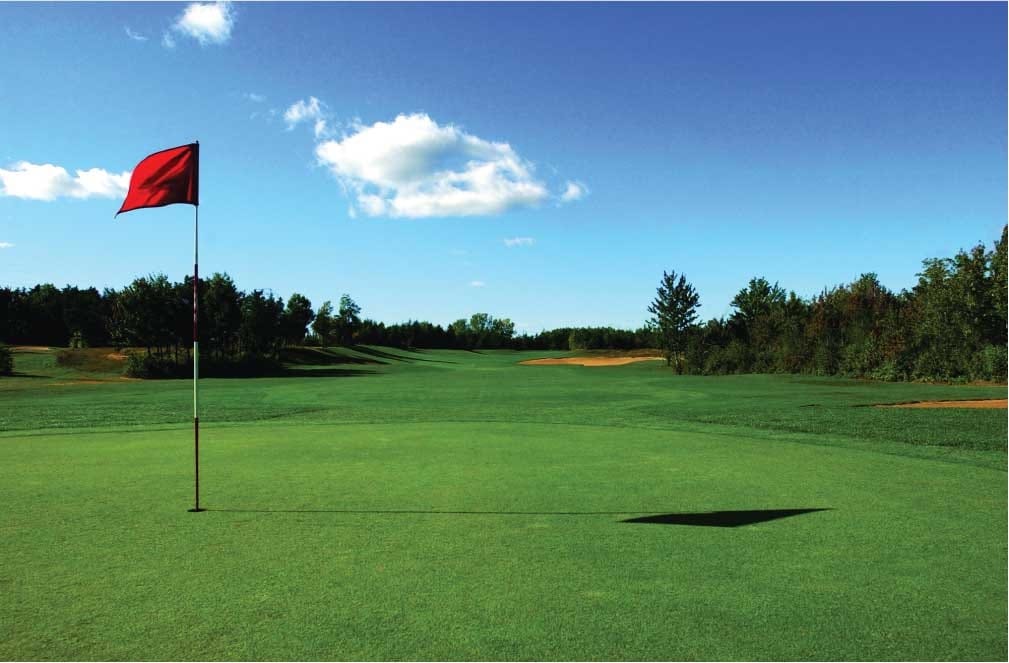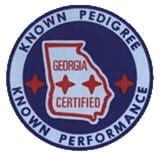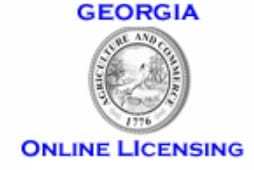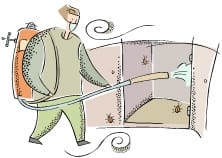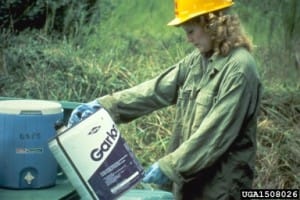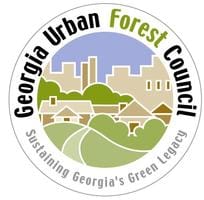UGA Urban Pest Management Certificate Program
Thursdays through June 11 – Griffin
Credit (24 hours total) 18 HPC & 6 WDO Cert/Reg Hrs
See agenda for details.
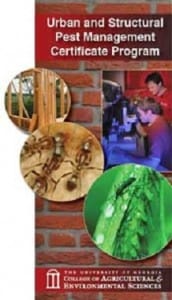 The Urban Pest Management Program on the UGA Griffin campus has established a 10-week lecture series resulting in the awarding of a Certificate in Urban and Structural Pest Management. The goal of the program is to provide Georgia’s pest management companies new service technicians exposed to various aspects of the industry, and to award current pest management professionals a University of Georgia-sponsored credential. Georgia Department of Agriculture-approved credit (Certificate Program) will be granted to currently registered and certified employees.
The Urban Pest Management Program on the UGA Griffin campus has established a 10-week lecture series resulting in the awarding of a Certificate in Urban and Structural Pest Management. The goal of the program is to provide Georgia’s pest management companies new service technicians exposed to various aspects of the industry, and to award current pest management professionals a University of Georgia-sponsored credential. Georgia Department of Agriculture-approved credit (Certificate Program) will be granted to currently registered and certified employees.
What is Urban and Structural Pest Management?
Urban and structural pest management is the protection of our property, food, and health from insect and rodent pests commonly found in homes, restaurants, and other businesses. The service technician is the front line of this defense, and thus the backbone of the pest management industry.
Who is this Certificate For?
This Certificate is appropriate for:
- individuals with no experience in the pest management industry, but who are looking to enter a stable and exciting field;
- individuals who, even though they might have extensive pest management experience, would like to energize their career by acquiring a professional credential, and;
- owners and managers of pest management companies looking to improve the skills of current and future employees.
The Certificate’s Lecture Series
Classes are held once per week, in the evening, on the UGA Griffin Campus. The Certificate’s curriculum is designed to expose students to various aspects of the pest management industry, including sales, customer service, and legal affairs. More than half of the Certificate’s 10 lectures are about the identification, biology, and management of the most common urban insect pests found in Georgia.
A Unique Training Opportunity
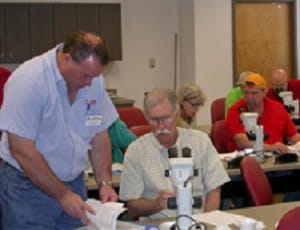 Because a laboratory session is part of each technical lecture, the Certificate provides a unique training opportunity even for the most experienced technician. Over the course of the Certificate’s various laboratory sessions, students are shown specimens of the 100 or so most common insect pests most likely to be encountered in and around Georgia’s urban environment.
Because a laboratory session is part of each technical lecture, the Certificate provides a unique training opportunity even for the most experienced technician. Over the course of the Certificate’s various laboratory sessions, students are shown specimens of the 100 or so most common insect pests most likely to be encountered in and around Georgia’s urban environment.
Program Fee
The Certificate fee is $195. Individual lectures can be taken for $20 each. Military veterans with a valid DD Form 214 attend free of charge.
For more information, contact Dr. Daniel Suiter at 770-233-6114.
To register for an upcoming Certificate Lecture Series, print the registration (PDF), fill it out, and return the bottom section with your payment to the address listed on the form. Faxed registrations are also accepted at 770-228-7287.
Directions to the training facility and a list of local hotels are available.
For more information see http://www.caes.uga.edu/departments/ent/upmp/certificate.html
